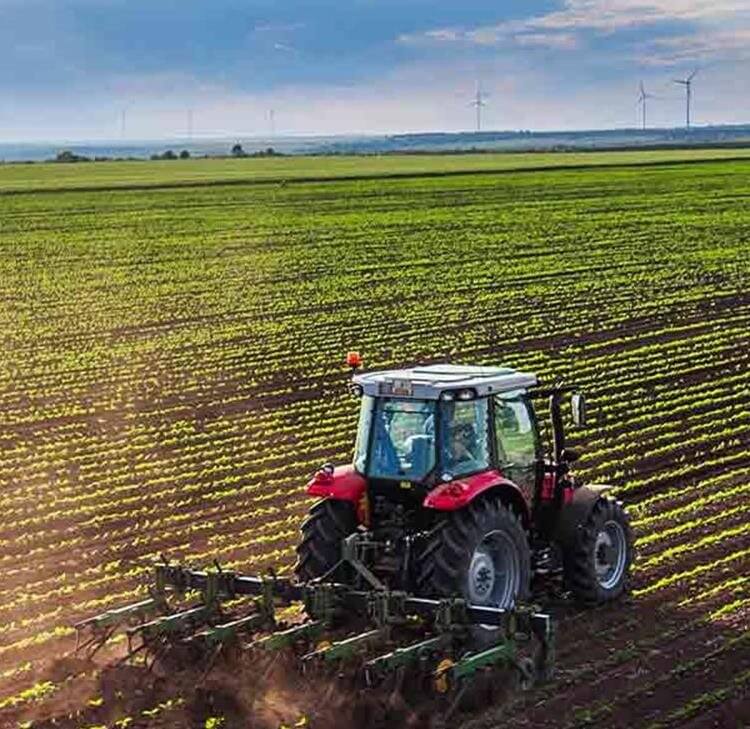Conservation newsletter - July 2020
There is a potential for significant change and public bodies are likely to be at the forefront of delivering that change.
This article is taken from July's public matters newsletter. Click here to view more articles from this issue.
The introduction of the Agriculture Bill, the Fisheries Bill and the Environment Bill mean that we are on the cusp of a significant change in our environmental legislative framework.
It is vital that the different pieces of legislation are effective, as this will form the basis of the framework that we are going to have to use in order to reach our Net Zero target and implement the 25 Year Environment Plan.
The Covid-19 pandemic has also required a dramatic shift in how we work and where we can go. This is had some significant environmental benefits (such as cleaner air), and many have called for the easing of the Covid-19 restrictions to be a ‘green recovery’. History suggests however that green issues often lose prominence in the face of economic downturns.
What is clear however is that there is potential for significant change ahead and public bodies are likely to be at the forefront of delivering that change.
News in brief
Government green home investment package
The Chancellor, Rishi Sunak, has revealed plans in the Summer Statement to introduce a £3bn package in order to better insulate and decarbonise buildings. It is understood that £1bn of this fund will be used to improve the energy efficiency of public buildings and provide them with low-carbon heating. The remaining £2bn will take the form of a grant scheme, which will result in homeowners receiving vouchers of up to £5,000 to be invested in energy-efficient home improvement. These grants will cover up to two thirds of the cost of the individual projects. The poorest households will be eligible for up to £10,000.
The announcement has been welcomed, but environmental organisations and opposition parties have asked whether the scheme goes far enough. This investment is much smaller that similar schemes that are being introduced in other European countries – specifically it has been noted that the £3bn being invested was only slightly more than what Germany is investing in hydrogen technology alone. In addition, there is a concern that this initiative will not benefit the most vulnerable in our society, for example those in the rental sector, who are typically in the least energy efficient properties.
There is very little detail that has been published by the government in relation to these plans, and it will be interesting to see whether this will in fact start a green recovery. One thing to note is that we will not be able to meet our Net Zero target with this one-off scheme: we need sustained investment over a prolonged period in order to ensure the necessary renewable technologies and skills base is established and integrated into the economy in order to make green energy truly sustainable.
The Government considers planning system reform in order to kickstart economy
Ministers are preparing for a major overhaul in the planning system in England in order to speed up and streamline the planning process as part of the Government’s plans to get the country building again and to restart the economy after the COVID-19 pandemic.
The proposals focus on the concept of ‘zoning’. This is the idea that certain areas will have certain cods or zones that will dictate the type of development that can take place in that area. Limited detail has been provided in relation to the zoning plans at this stage, and engagement from all stakeholders will be needed in order to ensure the reforms are workable, transparent and beneficial.
However, there are a number of challenges that the Government will need to consider when reforming the planning system. Firstly, a more codified system such as zoning may lead to less discretion for decision makers when considering applications, which could become an issue, particularly if a zoning plan becomes out of date. In addition, the ability for decision-makers to exercise discretion in the planning system is recognised in case law. If this discretion is to be removed or reduced, this could lead to increases in legal challenges, which will not have the desired effect of making the system more streamlined. Finally, a more codified system may not take into account or provide sufficient flexibility when considering environmental and nature conservation matters, particularly as scientific evidence is constantly evolving in this area.
The Prime Minster, when announcing his proposed planning reform, refereed to removing ‘newt counting’. Whilst no further details were given, concern has been expressed by many that the focus of the new reforms are not going to be environmental protection.
Environment Secretary considers local authority ecologists will be needed in order to deliver biodiversity net gain
The Environment Bill 2020, currently being considered by a Public Bill Committee, sets out the requirement for developments to achieve at least a 10% net gain in value for biodiversity. George Eustice, Environment Secretary, considers that this “advent of net gain” will likely require local authorities to review their capacity and expertise to undertake assessments of planning applications in order to decide whether additional ecological expertise is required. Eustice indicated that the government was looking at ways of funding ecologists to be made available to local authorities in order to ease pressure on this already limited resource.
Air pollution: How Covid-19 and lockdown measures have reduced air pollution in the capital
The Covid-19 pandemic has seen a drastic reduction in air pollution levels worldwide, particularly in areas that have introduced restrictions such as China and Northern Italy. The lockdown in London began in late March and data indicates that the lockdown measures have had a clear impact on nitrogen dioxide levels in the capital, most significantly at the sites of London’s most busy roads prior to the lockdown.
Bison to be re-introduced to UK woodland
A heard of European bison are to be brought to the UK as part of a “wilding project”. The move, which has been organised by Kent Wildlife Trust and the Wildwood Trust, will involve a herd being introduced to the West Blean nature reserve near Canterbury in Spring 2022. According to the Kent Wildlife Trust, the “wilding project” aims to give nature the tools and space it needs to recover. It also has the potential to increase the abundance of biodiversity to levels beyond what human management achieves. The project is funded by players of the People’s Postcode Lottery.
Kent Wildlife Trust have said that European bison are being used in this project as they are “ecosystem engineers”, which means that they are able to change their environment through their natural behaviours: specifically, this is because they eat bark and create dust baths which each have benefits for plans and animals in the area. Kent Wildlife Trust say that “these are functions that have been missing from our UK woodlands for thousands of years and bringing them back can help restore an abundance of wildlife”.
Talking a closer look
Annual progress report on reducing greenhouse gas emissions: the impact of Covid-19 and future challenges for the Government
For the first time, in this year’s report, tools have been provided to Parliamentarians to scrutinise the progress across Whitehall.
Marine Conservation Zones: protecting seahorse populations in England
Sections 125 and 126 of the Marine and Coastal Access Act 2009 impose duties on public bodies in respect of marine conservation zones.
Legislation
Environment Bill 2020
The Environment Bill is being considered by a Public Bill Committee which is scheduled to report by 29 September 2020. This Bill will put the environment at the centre of policy making by setting targets, plans and policies to improve the natural environment. The Bill also seeks to create a new environmental governance framework tailored to the UK context.
The Bill will create an obligation on public authorities to consider their policies and operations regularly (at least every 5 years) to see what action can be taken to further conservation and to enhance biodiversity. Local authorities will also have to produce a Biodiversity Report every 5 years. The Bill will make it mandatory for developments to leave habitats in a measurably better state than they were in prior to the development. Parts 6 and 7 of the Bill provide for nature and conservation covenants. These conservation covenants between landowners and responsible bodies may contain positive or restrictive obligations to further conservation objectives for the public good, which will bind subsequent landowners to have a longer-term conservational benefit.
Fisheries Bill 2019-21 (HL Bill 71)
This Bill had its first reading in the House of Commons on 2 July 2020. It will create powers for the UK to operate as an independent coastal state and to sustainably manage its fish stocks outside the EU. George Eustice, Fisheries Minister, has described the Fisheries Bill as having the power to “improve our marine habitats” and allow marine habitats to thrive. This Bill is intended to take into account climate change and move the UK towards climate smart fishing in UK waters.
Agriculture Bill 2019-21
The agriculture is due to ender the committee stage of the House of Lords on 14 July 2020. It is described as a bill to properly support farmers to innovatively protect the environment. One of the key concepts is that public money will only be provided for public goods, such as better air and water quality, higher animal welfare standards, improved access to the countryside or measures to reduce flooding.
Details of the precisely how this will be achieved have not been set out. The details will be set out by regulations.
It has been criticised for not requiring adherence to current EU food quality standards.
Case-law
Alianta Pentru Combaterea Abuzurilor v TM and Others Case C-88/19
In this case, the European Court of Justice (‘ECJ’) confirmed that the Directive 92/43 (‘Habitats Directive’) and the strict protection of animal species provided for therein also applied to animals that stray from their natural habitat into human settlements. The ECJ ruled that “the concept of natural range is greater than the geographical space that contains the essential physical and biological elements for an animal’s life and reproductions”. It was confirmed that the natural range extended to the geographical space in which the species is present or to which it may be present in the course of its natural behaviour.
R. (on the application of National Farmers Union) v Secretary of State for the Environment, Food and Rural Affairs [2020] EWHC 1192 (Admin)
The claimants applied for judicial review of the Environment Secretary’s decision to issue a direction to Natural England under section 16 of the Natural Environment and Rural Communities Act 2006 requiring it not to grant any badger culling licences in Derbyshire before May 2020. The application was refused on the basis that the Court considered that the Environment Secretary had made a judgment, having regard to the UK’s vaccination programmed, the anti-culling lobby and the risk of fallout if a vaccinated badger was culled by mistake, and the decision was not irrational.
Proceedings brought by Luonnonsuojeluyhdistys Tapiola Pohjois – Savo – Kainuu ry (C-674/17)
This case confirmed that a Member State my not derogate from the protection on the deliberate killing of wolves, by way of hunting for population management purposes, for the sole purpose of combating poaching, under article 16(1) of the Habitats Directive. The Court confirmed that derogation was only permissible where several conditions were met, including that there be no satisfactory alternative.









































